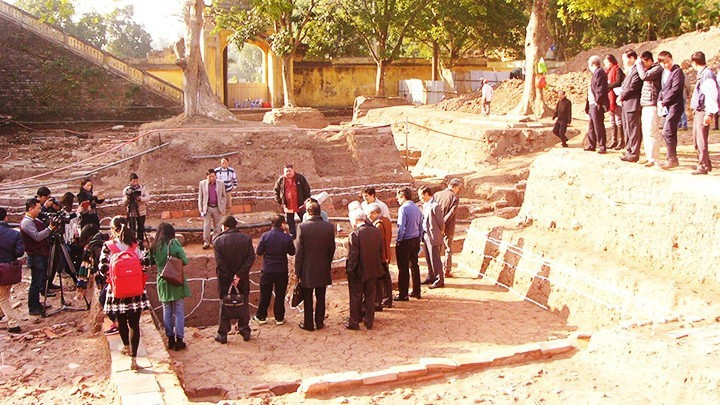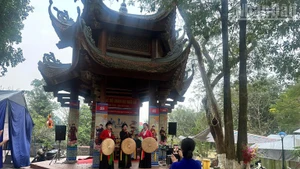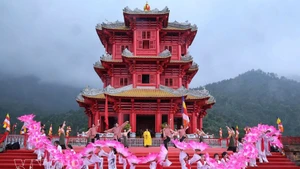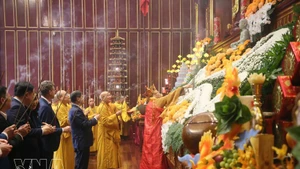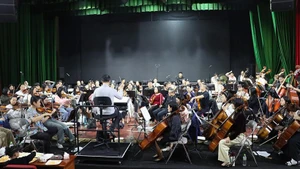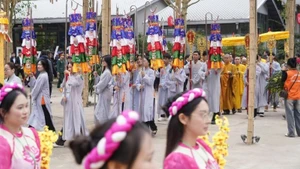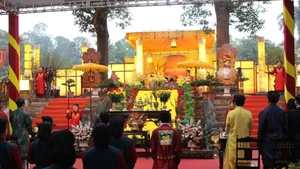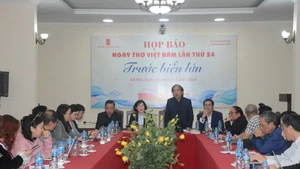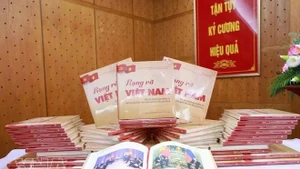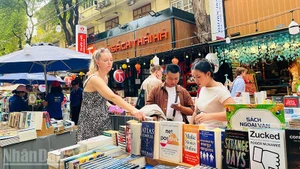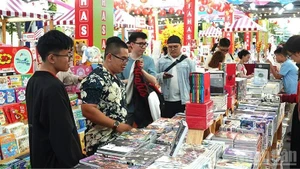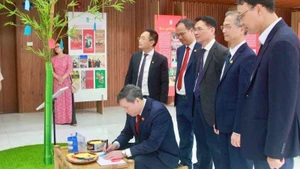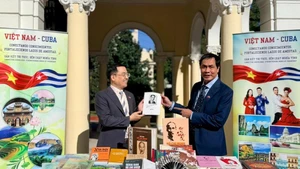In the Draft Documents submitted to the 14th National Party Congress, a key ideological and strategic highlight is clearly established: culture and people are the foundation, the resource, the endogenous strength and a major driving force, the regulatory system for sustainable social development; and the building and development of an advanced Vietnamese culture imbued with national identity must be synchronised on the basis of national values, cultural values, family values and the standards of Vietnamese people.
This is not only an inheritance of the viewpoint that “culture is the spiritual foundation of society” but also a development in both awareness and action in the context of deep international integration. In that framework, the task of conserving and effectively promoting the value of cultural heritage in connection with heritage-based economic development becomes a focal point, reflecting the Party’s determination to make culture an important driving force for sustainable national development.
Many contributing opinions agree that the viewpoint of conserving and promoting the value of cultural heritage alongside heritage-based economic development represents a new way of thinking about cultural development, as traditional conservation practices often concentrated solely on “preservation in its original state”.
Developing a heritage economy not only ensures the reasonable utilisation of heritage values but also helps generate resources for reinvestment in conservation, thereby forming a sustainable development cycle in which conservation provides the foundation for development, and development creates resources for conservation.
Practical experiences in many localities show that, when properly oriented, the heritage economy can generate “dual benefits”: improving the material and spiritual lives of local communities; awakening residents’ responsibility and pride in preserving and promoting national culture; and enabling heritage to “live” within modern society.
Hoang Viet Trung, Director of the Hue Monuments Conservation Centre, affirmed that the Draft Documents mark a strong shift in thinking by recognising culture as a spearhead economic sector, an endogenous resource and a driver of growth.
Hoang Viet Trung highly appreciates the Draft Documents for setting out the need to continue renewing the Party’s leadership methods and the State’s management of culture; promoting digital transformation; building and effectively managing the cultural environment; and developing and effectively regulating the market for digital cultural products and services.
As a locality with eight UNESCO-recognised heritage sites, Hue city has implemented numerous solutions to effectively leverage heritage for economic value while ensuring preservation. Notably, these include digitisation and data standardisation. The Hue Monuments Conservation Centre has standardised heritage data comprising 1,400 revised dossiers and 110,000 digitised pages of documents.
From this digital database, Hue has begun to form cultural products such as interactive exhibitions, digital exhibitions, intelligent tourism interaction stations and digital certificates. The TapQuest project at Hai Van Quan has been launched, enabling visitors to interact through intelligent interactive stations. These products transform “static preservation” into “dynamic exhibition”, turning heritage data into a new economic resource and helping disseminate the distinctive cultural values of Hue to the world.
According to Hoang Viet Trung, practical lessons from Hue’s heritage economy model show that “turning heritage into assets” and generating economic value from traditional cultural values is an appropriate direction. However, the issue of heritage-based economic development needs to be addressed more comprehensively and institutionalised more strongly in the Draft Documents submitted to the 14th National Party Congress.
Accordingly, it is necessary to supplement content relating to establishing a clear legal framework for the heritage economy model; planning the different categories within the heritage economy sector; clearly defining the scope, criteria, operating mechanisms and benefits of participating stakeholders; and developing mechanisms and policies to encourage and promote the heritage economy. Policies to promote socialisation and digital transformation in heritage conservation should also be included, creating a legal corridor for enterprises and communities to participate in developing cultural products and services linked with heritage; and establishing heritage-based economic development as a pillar of the cultural industries, associated with sustainable tourism strategies.
Contributing to the Draft Documents submitted to the 14th National Party Congress, many citizens also agree that linking heritage conservation with heritage-based economic development not only provides momentum for cultural progress but also offers a concrete means of realising the Party’s viewpoint on the comprehensive development of Vietnamese culture and people. This contributes to the building of an advanced Vietnamese culture imbued with national identity, worthy of a nation with a thousand-year tradition of civilisation.
